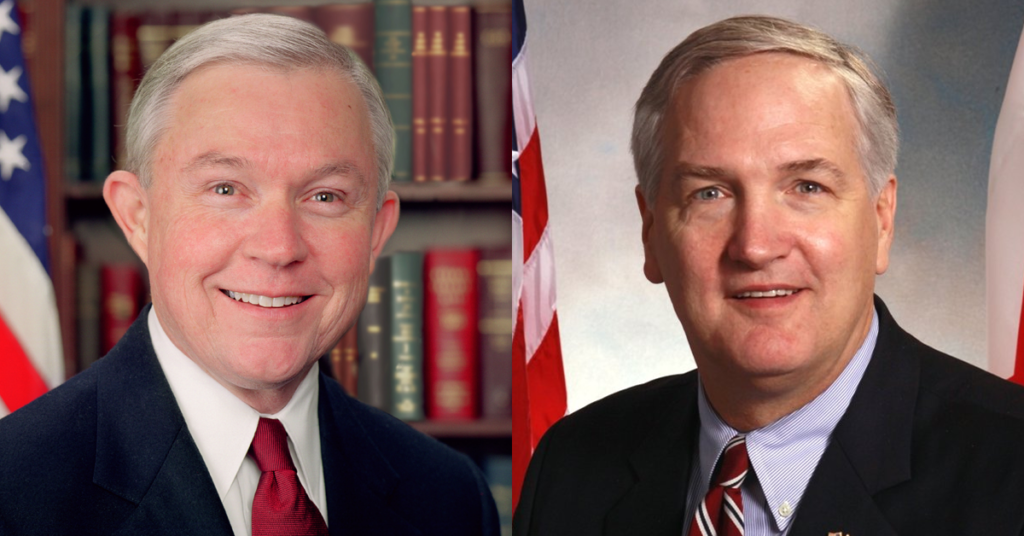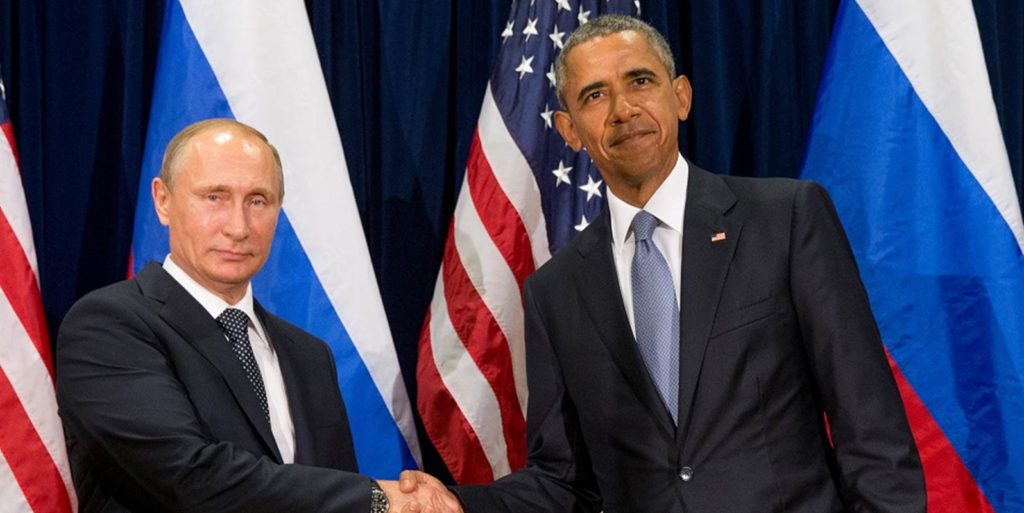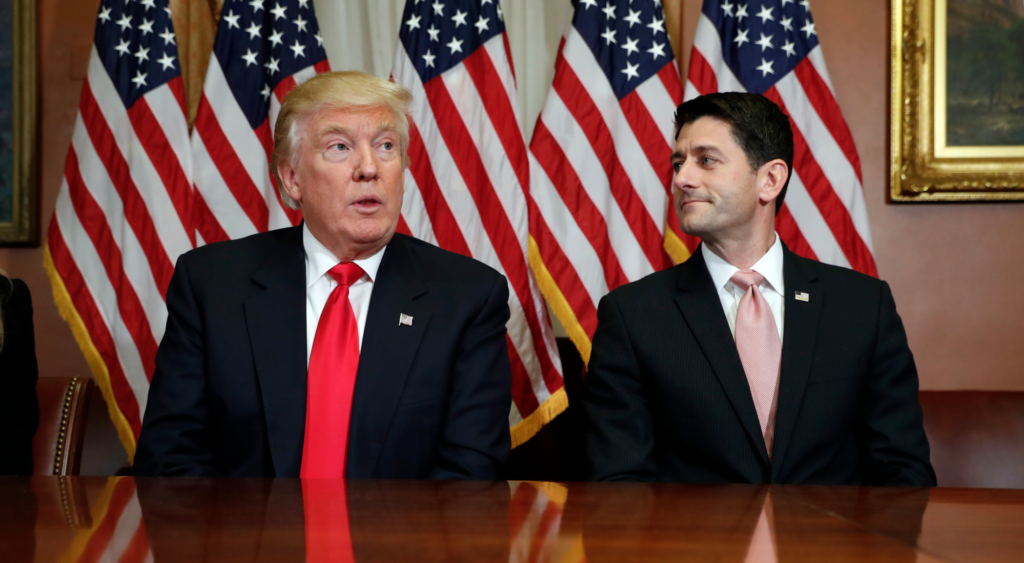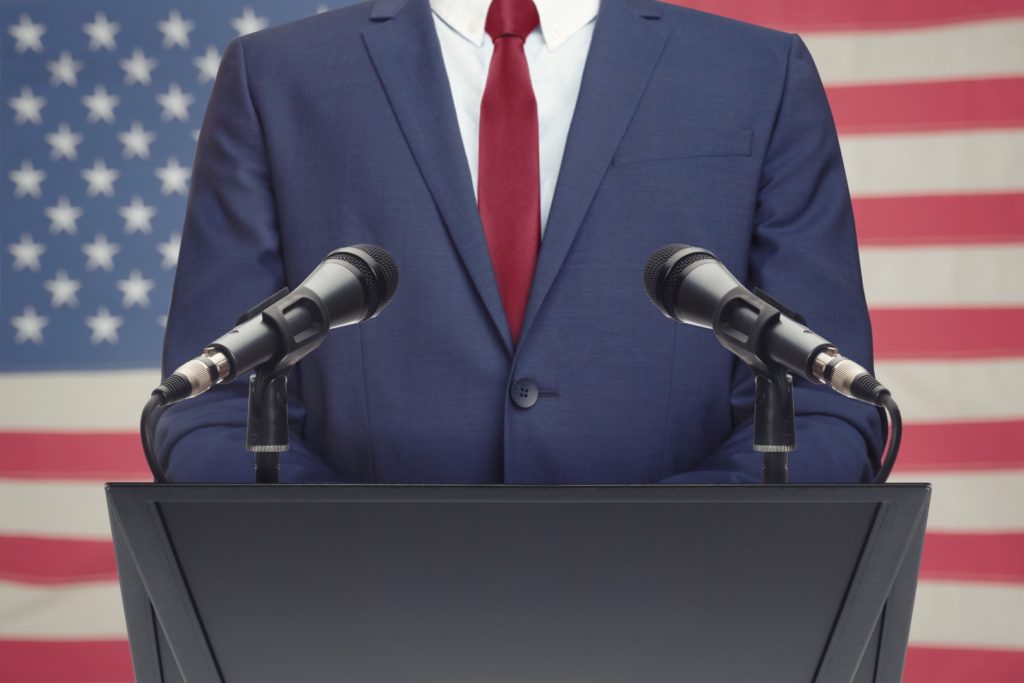Luther Strange joins state AGs urging Senate to confirm Jeff Sessions

Alabama Attorney General Luther Strange joined 24 other state attorneys general in urging the leadership of the Senate Judiciary Committee to confirm the nomination of Senator Jeff Sessions as United States Attorney General, when the confirmation hearings convene on Jan. 10, 11. “Few positions are more important than our nation’s attorney general,” Attorney General Strange wrote in a joint letter to Senators Chuck Grassley and Patrick Leahy Thursday. “The person who fills that role is not only charged with keeping our streets safe, but upholding the legal principles that are the bedrock of our republic. Senator Sessions has proven over a long and distinguished career that he has the character to serve as United States Attorney General for all Americans. We urge his confirmation.” Attorney General Strange and his colleagues further emphasized Senator Sessions’ unique breadth of experience as a United States Attorney, State Attorney General and more recently as a long-serving U.S. Senator focusing on judicial fairness. “He has faced the challenges of balancing justice with fairness and the rule of law with individual freedom, qualifications that make him well suited to his new role,” they added. “His leadership on important policy matters has been invaluable.” The AGs also detailed how, in 2001, Sessions led the efforts to reduce unfair disparity in drug sentencing. Citing his introduction of the first bipartisan drug sentencing reform act, which ultimately became law that has not only saved the federal government millions of dollars and reduced sentences for non-violent offenders, but also has set a standard for fairness in sentencing. “We need that kind of thoughtfulness, discretion, and leadership at the helm of the Department of Justice,” the AGs opined. “I have known Senator Sessions for more than 20 years and am convinced he possesses the right combination of legal experience and judgment to lead the U.S. Justice Department,” said Attorney General Strange. “I am proud to support his nomination.” Last week, Strange officially threw his hat into the ring to replace Sessions in the U.S. Senate should he vacate the seat to become U.S. Attorney General.
Barack Obama vows retaliation for suspected Russian hacking

President Barack Obama is promising that the U.S. will retaliate against Russia for its suspected meddling in America’s election process, an accusation the Kremlin has vehemently denied. As the White House grew more bullish about suggesting President Vladimir Putin was personally involved, Obama said he’d spoken directly to Putin about his concerns about Russian meddling. He said whenever a foreign government tries to interfere in U.S. elections, the nation must take action “and we will at a time and place of our own choosing.” “We have been working hard to make sure that what we do is proportional, that what we do is meaningful,” Obama said in an NPR News interview airing Friday. Obama’s remarks were the clearest indication that whatever response the U.S. is planning, it hasn’t happened yet. The White House has insisted for months that when the U.S. did retaliate, it might not be made public, a position that has created uncertainty about the strength and timing of any response. Obama was expected to face questions about the hacking and his response during a news conference at the White House on Friday afternoon. White House officials said it was “fact” that Russian hacking helped Donald Trump’s campaign against Democratic presidential nominee Hillary Clinton. White House press secretary Josh Earnest on Thursday also assailed Trump himself over his refusal to acknowledge the hacking and his attacks on the U.S. intelligence community. The tough talk from the White House fell flat in Moscow, where Putin spokesman Dmitry Peskov called the accusations baseless and inappropriate. “They should either stop talking about that, or produce some proof at last,” Peskov told reporters Friday. “Otherwise it all begins to look unseemly.” There has been no specific, persuasive evidence shared publicly about the extent of Putin’s role or knowledge of the hackings. That lack of proof undercuts Democrats’ strategy to portray Putin’s involvement as irrefutable evidence of a directed Russian government plot to undermine America’s democratic system. But the White House pointed to a U.S. intelligence assessment released publicly in October that asserted “only Russia’s senior-most officials could have authorized these activities.” And Obama’s deputy national security adviser, Ben Rhodes, connected the dots further, saying Thursday Putin was responsible for the Russian government’s actions. “I don’t think things happen in the Russian government of this consequence without Vladimir Putin knowing about it,” he told MSNBC. Trump struck back Friday morning, with a Twitter post mockingly asking “are we talking about the same cyberattack” in which embarrassing information about the Democratic National Committee was also revealed. His tweet invoked emailed stolen from Hillary Clinton’s campaign chairman and later released publicly in hacking that has been linked to Russia. In the NPR interview, Obama sough to contrast the current incident with “a traditional understanding that everybody’s trying to gather intelligence on everybody else.” “One of the things we’re going to have to do over the next decade,” he said, is find an international understanding on rules involving what has become “a new game.” Obama said that U.S. officials should not let “the inter-family argument between Americans” obscure the need for people to “stand together” on this issue. “My view is that this is not a partisan issue,” the president said, exhorting people to “take it out of election season and move it into governing season.” The explosive accusation suggests Putin, the leader of perhaps America’s greatest geopolitical foe, as having directly undermined U.S. democracy. U.S. officials have not contended, however, that Trump would have been defeated by Clinton on Nov. 8 if not for Russia’s assistance. Nor has there has been any indication of tampering with the vote-counting. The dispute over Russia’s role has also fueled an increasingly public spat between Obama’s White House and Trump’s team that is threatening to spoil the delicate truce that Obama and Trump have forged since Election Day to smooth the billionaire businessman’s move to the White House in little over a month. Kellyanne Conway, Trump’s senior transition adviser, said it was “breathtaking” and irresponsible that the White House had suggested Trump knew Russia was interfering to help his campaign. That led Earnest to unload from the White House, arguing that Trump, who has dismissed the CIA’s assessment of Russian interference, should spend less time attacking the intelligence community and more time supporting the investigation that Obama has ordered. Earnest said it was “obvious” Trump knew what Russia was doing during the campaign, pointing out that Trump had encouraged Moscow during a news conference to find Clinton’s missing emails, repeating the assertion Obama made in “The Daily Show” appearance. Trump has said he was joking. “I don’t think anybody at the White House thinks it’s funny that an adversary of the United States engaged in malicious cyber activity to destabilize our democracy,” Earnest said. “That’s not a joke.” Republished with permission of The Associated Press.
Coalition airstrikes destroy air defense weapon in Syria

Coalition airstrikes destroyed an air defense system that Islamic State militants had captured last weekend when they retook the Syrian city of Palmyra from Russian and Syrian regime forces. The U.S.-led coalition says that strikes in 10 locations destroyed the artillery system, 14 tanks, buildings and vehicles. The top U.S. general leading the fight against IS had warned that the coalition would likely target the area if Russian and Syria forces didn’t take action in Palmyra. He said the weapons posed a threat to the coalition. Islamic State militants retook Palmyra on Sunday, scoring a major advance by taking advantage of the Syrian and Russian focus on Aleppo. Palmyra was taken over by IS last year and the militants spent 10 months in control. Republished with permission of The Associated Press.
US elector demands briefing on Russia election interference

Weeks after Hillary Clinton lost the presidential election to Donald Trump, some of her loyal supporters have not given up hope. Clay Pell, a vocal supporter of the Democrat during her long campaign and one of the 538 members of the Electoral College, said the process has been tarnished by Russian interference. He is leading a push for electors to be given more information about it before casting their votes Monday. Tradition holds that electors meet in their respective states and formally cast their votes without attracting much attention, but this year is “so beyond the normal bounds,” said Pell, one of Rhode Island’s four Democratic electors. “We as electors have a narrow role, but nonetheless it’s a role in protecting the integrity of the election,” Pell said in an interview this week, noting his past work in the Obama administration as a strategic planning director for the White House National Security Council. On Thursday, the Obama administration suggested that Russian President Vladimir Putin personally authorized the hacking of Democratic officials’ email accounts in the run-up to the presidential election and said it was “fact” that such actions helped Trump’s campaign. The White House also assailed Trump himself, saying he must have known of Russia’s interference. “Only Russia’s senior-most officials could have authorized these activities,” White House spokesman Josh Earnest said, repeating the words from an October U.S. intelligence assessment. Pell said he began talking with electors around the country several weeks ago to gauge their thoughts about the process. Some Democrats had proposed thwarting Trump by joining Republicans in choosing a more moderate Republican alternative, such as Ohio Gov. John Kasich, but Pell called those efforts “hypothetical.” “There are really so many Trump electors. It really depends on some of the Trump electors wishing to do something different and I haven’t heard or seen that,” he said. “The voters of Rhode Island voted for Hillary, so that is the way I would expect to vote, and do plan to vote,” he said. “If there were a real change, I’m sure people would look at that. That hasn’t been the case.” An Associated Press survey of the electors found little appetite for such an insurgency. Only one of the Republicans interviewed by the AP said he would vote against the president-elect. Trump won 306 electoral votes last month, well above the 270 he needs to make him president. Although Democrats in Pell’s tiny state went for Vermont Sen. Bernie Sanders in the primary, Pell’s support for Clinton, the former secretary of state, has been unwavering. Pell’s wife, the Olympic gold medalist figure skater Michelle Kwan, was a prominent Clinton campaign surrogate. His grandfather, the late Democratic U.S. Sen. Claiborne Pell, is the namesake behind the federal government’s college financial aid Pell Grants that Clinton promised to protect. Pell is a lieutenant commander in the U.S. Coast Guard Reserve with his own political aspirations. He was the third-place Democratic primary candidate for Rhode Island governor in 2014, and has held several jobs in the Obama administration. When news broke late last week of the CIA’s conclusion that Russia likely sought to influence the U.S. election on behalf of Trump, Pell and nine other electors – all but one of them Democrats – quickly crafted and published an unprecedented letter to U.S. Director of National Intelligence James Clapper demanding a briefing. Their letter, now with dozens of signatures, described the Electoral College as a deliberative body whose members have more than an “empty or formalistic task” to summarily cast their votes. “There’s been an attack on the integrity of the United States,” Pell said this week. “As a person with a background in national security, I take that very seriously.” Republished with permission of The Associated Press.
Michelle Obama: Movie ‘Hidden Figures’ shows importance of diversity

Michelle Obama says the movie “Hidden Figures” shows how diversity helps move the country forward. The first lady commented at a White House screening of the film Thursday featuring cast members Taraji P. Henson, Janelle Monae, Octavia Spencer and Kevin Costner. The movie tells the story of three black female NASA mathematicians whose work in the early 1960s enabled the first launches of Americans into space, including astronaut John Glenn‘s orbiting of the earth. The 95-year-old Glenn died last week. Mrs. Obama noted that the black mathematicians couldn’t use the same water fountains or bathrooms as their colleagues. But she says their example shows that “you don’t come up with the right answer if everyone at the table looks the same and thinks the same and has the same experience.” Republished with permission of The Associated Press.
Donald Trump and Paul Ryan learn how to get along for now

President-elect Donald Trump and House Speaker Paul Ryan have put their rocky start behind them and are learning how to get along – for now. One key to their blossoming friendship: Along with Senate Majority Leader Mitch McConnell, they are mapping out an agenda for 2017 that focuses on broad areas of agreement, putting off until a later date thorny policy issues that are likely to invite clashes. Even so, Trump made clear this week that the warm embrace he now bestows on Ryan can be revoked at any time. “Every day goes by, I get to appreciate his genius more and more,” Trump told a crowd in Ryan’s home state of Wisconsin, comparing the speaker to a “fine wine” before adding a warning: “Now, if he ever goes against me, I’m not going to say that.” For his part, Ryan, who initially refused to endorse Trump, now brims with enthusiasm at the opportunities afforded by unified GOP control of Washington next year. “We’re working on an aggressive timetable for 2017,” the speaker said Thursday at a forum on poverty hosted by the Opportunity America think tank. “We’re right now sitting down with Sen. McConnell and the Trump administration, the transition team, to try and flesh out what we think is a realistic timetable so that we get the legislation prepped and ready to go.” Trump and congressional Republicans plan to start the year by repealing President Barack Obama’s health care law, widely derided by critics as “Obamacare,” and then move to reform the loophole-cluttered U.S. tax code. Trump wants huge tax cuts and has largely embraced a blueprint devised by the House GOP, which envisions lower rates on corporations, individuals and investments. The issues where Trump and Ryan may be more likely to disagree – like an enormous infrastructure bill, an overhaul of Medicare, or immigration – have been pushed to the back burner. Health care and taxes alone are likely to consume the first year of Trump’s administration and are certain to involve plenty of complications themselves, but at least Republicans start out generally in the same place. “I think the important thing to do is focus on what we agree on, get that moving, and then make the others a work in progress,” GOP Rep. Peter King of New York said Thursday after meeting with Trump at Trump Tower. “Generally if you’re doing well and if it is moving along, some of the other issues have a way of working themselves out.” Ryan and Trump come from vastly different political orientations. Ryan, 46, is an earnest conservative wonk, schooled in the nitty-gritty of tax and budget policy, who’s committed to core GOP principles like free trade. Trump, 70, has deviated from Republican dogma on any number of issues, and has gone back and forth on others. He opposed cutting programs like Medicare and denounced trade deals. Trump also advocated barring Muslims from entering the country and rounding up immigrants, policy positions that Ryan repudiated. Ryan withheld his endorsement for weeks, and then bestowed it on Trump only to announce, after the release of audio of Trump bragging about groping women, that he would no longer defend Trump or campaign with him. Trump, in return, attacked Ryan over Twitter as a “weak and ineffective leader” and accused him of “disloyalty.” Since Trump’s convincing Election Day victory the two have, by all accounts, put their disagreements behind them. They now speak on the phone multiple times weekly, calling each other directly on their cellphones to talk for anywhere from a couple minutes to closer to an hour, according to Ryan allies. They discuss personnel picks, though Trump hasn’t taken all of Ryan’s recommendations, as well as policy and plans. They focus on what they want to get done and how to do it, not the areas where they’ve parted ways, like Trump’s recent call for steep tariffs on imports. And despite their differences on policy and in lifestyle, the two share an energetic approach, a desire to get things done, even a tendency to be overly optimistic about what can be accomplished. Brandon Scholz, a longtime Wisconsin Republican operative who has known Ryan since he was elected to Congress in 1998, said Ryan and Trump quickly realized it was mutually beneficial for them to work together. “There’s just not another path,” Scholz said. “It’s about the agenda now.” Ryan has told Trump he will need to use the bully pulpit of the presidency to promote the House agenda. But Trump could also use that perch to prod or punish lawmakers who stray. Before the election, Ryan faced grumbles from conservatives unhappy over his criticism of Trump. As much as the two men need each other to get things done, Ryan may also need to stay in Trump’s good graces to maintain his perch atop the GOP conference. For now Trump’s allies in the House say discontent over Ryan’s initial opposition to Trump has quieted. “I think much of that has subsided, because we have watched Paul Ryan, who is an upstanding, honorable guy, move forward and say we are all on one team, and we have a heavy lift and we don’t have time for minutiae and petty differences,” said GOP Rep. Marsha Blackburn of Tennessee. “We have a country to save.” Republished with permission of The Associated Press.
Incumbents have better-than-average year in 2016, says Sabato’s Crystal Ball

It was a good year to run as an incumbent according to an article published Thursday in Sabato’s Crystal Ball. “Looking over the down-ballot outcome, there’s one inescapable conclusion in a year that was defined by a political outsider, Donald Trump, winning the presidency: It was still a really good year to run as an incumbent in 2016, all things considered,” the report states. Since the end of World War II, about 93 percent of incumbent representatives, 80 percent of senators and 73 percent of governors won re-election, but the 2016 cycle beat those averages handily. Overall, 27 of 29 senators, four out of five governors and 380 out of 393 representatives running for re-election won another term on Election Day. More incumbents could have won re-election, too, were it not for court-ordered redistricting in Florida, North Carolina and Virginia that put a handful of incumbents in each state at a disadvantage. Also, outgoing North Carolina Republican Gov. Pat McRory and exiting New Hampshire Republican Sen. Kelly Ayotte each lost their re-election bids by slim margins. There will still be plenty of new blood in Washington D.C. and state capitols next year even though incumbents enjoyed a high success rate. Seven new governors will take office next year, and about an eighth of the House will be new when the next Congress convenes. The Senate will also welcome seven new members, and will likely add an eighth after Alabama Republican Sen. Jeff Sessions’ confirmation hearings for the Attorney General job. “However, despite the fact that there is some churn in Congress and in the statehouses, the reality is that if an incumbent is on the ballot, he or she typically has good odds of winning,” Kyle Kondik and Geoffrey Skelley wrote. “That’s been true for much of recent American history, and it was still true in 2016.”


